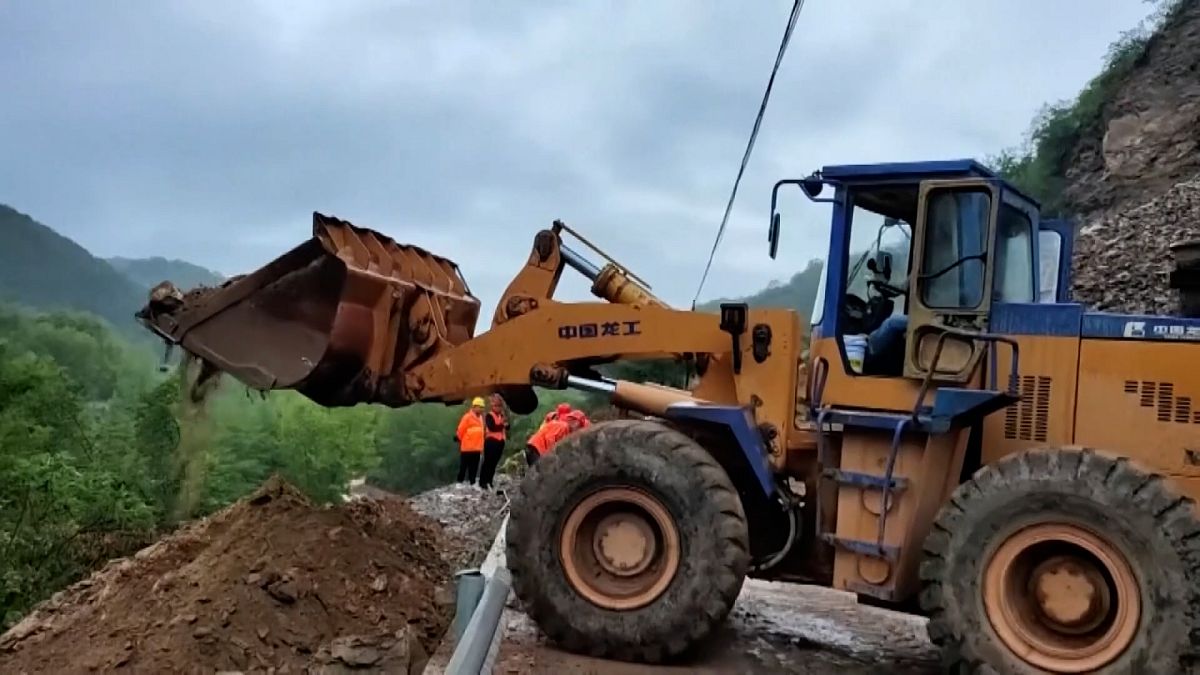

As the world continues to face the multifaceted impacts of climate change, a series of interconnected events and responses across Europe and beyond showcase the resilience and adaptability of communities and governments alike. In this calm yet compelling overview, we explore the challenges and thoughtful actions unfolding in different regions.
In China, persistent rainfall has led to unprecedented river levels, prompting authorities to issue flood alerts to 10 provinces and regions. The government is advocating for reinforced flood defenses, emphasizing both preventive measures and community safety as top priorities. This alert comes as a reminder of the powerful forces of nature and the importance of preparedness in safeguarding lives and infrastructure.
Meanwhile, in Southern Europe, the Greek island of Crete is grappling with a fast-moving wildfire driven by strong winds, necessitating the evacuation of over 1,500 people from their homes and accommodations. Similarly, eastern Germany faces its own wildfire threats, where complex terrain and the risk of ammunition detonation pose additional challenges for firefighters working to contain the blaze. These incidents underscore the need for integrated disaster response strategies and highlight the bravery of those on the frontline.
The scorching summer heat gripping Italy illustrates another climate challenge, with the Rome zoo taking innovative measures to ensure the well-being of its animal residents. By providing ice-filled treats, zookeepers aim to keep the animals cool and comfortable, a reminder of the creative solutions that can alleviate the immediate impacts of climate stress on both humans and animals.
Simultaneously, efforts to address climate change at a systemic level are gaining momentum. France and Spain have joined an international push to tax private jets and premium flights, seeking to generate significant funds for climate action and sustainable development. This initiative not only aims to foster greater accountability for high-emission travel but also to galvanize financial resources for transformative environmental projects around the world.
In an insightful development, the European Union, under the guidance of Commissioner Wopke Hoekstra, is exploring the strategic use of carbon credits. By investing in emission reductions abroad, the EU seeks to build partnerships and drive global change while addressing its climate goals. This approach has the potential to foster international cooperation and leverage diverse contributions to the shared objective of reducing carbon footprints.
However, Europe also faces emerging health challenges linked to environmental changes. An alarming study in the Netherlands revealed that every Dutch person tested had ‘forever chemicals’ known as PFAS in their blood. This finding has spurred discussions on chemical regulation and the need for rigorous safety standards to protect public health. Additionally, the continent’s extreme pollen levels have triggered allergies in individuals previously unaffected, highlighting the long term implications of shifts in flowering cycles due to climate shifts.
Collectively, these varied climate-related developments call for ongoing attention and action. From community-led responses to international policy collaborations, the journey toward a balanced coexistence with our environment requires resilience, innovation, and solidarity. As we continue to navigate these times, let us be inspired by the shared commitment to creating a sustainable future for all.
Source: {link}
